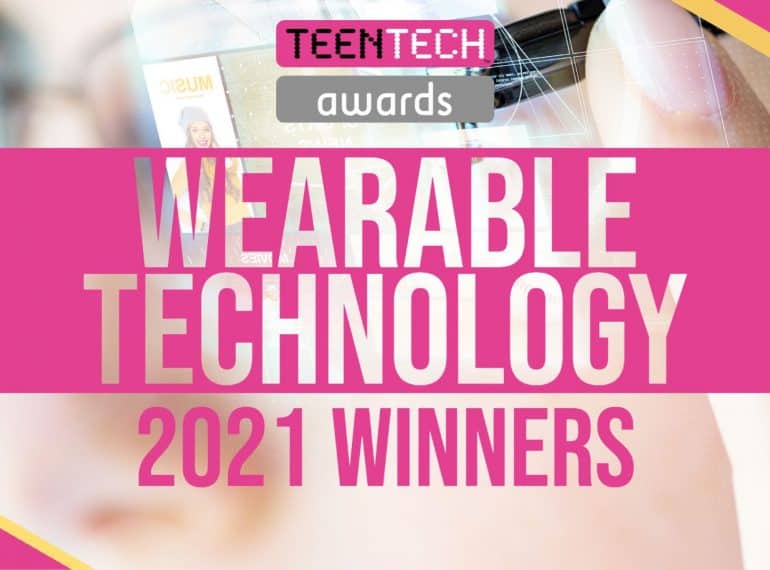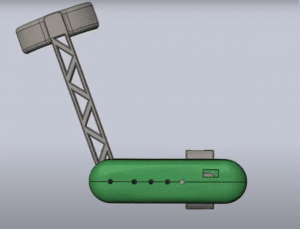
A pair of Year 11 pupils’ design for a hi-tech, small-scale solution to the problem of faltering power supplies in developing countries won first prize in a national competition.
 Anubhav Rathore and Heemy Kalam’s Flex-Charge – a device that harvests the energy of arm and leg movements to generate electricity – won the Wearable Technologies category of the 2021 TeenTech Awards.
Anubhav Rathore and Heemy Kalam’s Flex-Charge – a device that harvests the energy of arm and leg movements to generate electricity – won the Wearable Technologies category of the 2021 TeenTech Awards.
The QE duo had been shortlisted for the final together with five other entries in their category. They won the category jointly with a team of girls from Leicester Grammar School, whose invention aimed to help prevent lameness in horses.
Technology and social media pundit Kate Bevan said: “I judged this category and all the entries were brilliant, but these two were outstanding…so thoughtful and creative.” Ms Bevan is a broadcaster and freelance writer for news organisations including the BBC, Financial Times, Sky News and The Guardian.
The pair were congratulated by QE’s Head of Technology, Michael Noonan, who said: “Anubhav and Heemy displayed ingenuity, tenacity and technical skill with their entry, which was an elegant solution to the very real difficulties caused by intermittent and non-existent power in some parts of the world.”
The two boys were among 95 young people – 62 girls and 33 boys – whose 59 projects reached the virtual final of the TeenTech Awards, which were set up to encourage young people to explore how to use science and technology to resolve real-world problems.
 The final was hosted by veteran technology reporter Maggie Philbin, CEO of the TeenTech educational charity, and included contributions from celebrities with ‘tech’ connections, including Professor Brian Cox, journalists Kate Russell and Rory Cellan-Jones, TV presenters LJ Rich and Dallas Campbell, Stephen McGann (Dr Turner in TV’s Call the Midwife), Dallas Campbell, and Dr Suzie Imber, Associate Professor in Space Physics at Leicester University.
The final was hosted by veteran technology reporter Maggie Philbin, CEO of the TeenTech educational charity, and included contributions from celebrities with ‘tech’ connections, including Professor Brian Cox, journalists Kate Russell and Rory Cellan-Jones, TV presenters LJ Rich and Dallas Campbell, Stephen McGann (Dr Turner in TV’s Call the Midwife), Dallas Campbell, and Dr Suzie Imber, Associate Professor in Space Physics at Leicester University.
In their scripted presentation, the boys explained the rationale for Flex-Charge: “Our product is a portable, wearable device which converts arm or leg rotation into usable electrical power.
“Its primary client base is those in developing countries with limited access to power. We used advanced CAD [computer-aided design] assembly, prototyping and simulation tools to optimise our design and met the needs of our emerging, eco-friendly society.”
The TeenTech Awards were established in the 2012–13 academic year to encourage young people to develop their own ideas for making life better, simpler, safer or more fun. Participating schools are provided with a suggested structure and industry contacts. There are 15 categories.
All the submitted projects received feedback, while the winners also received a cash prize.
